Tunisia
Tunisian President Kais Saied on Thursday published a draft constitution that will be put to a referendum on July 25 and gives broad powers to the head of state, marking a radical break with the existing parliamentary system.
The text, published in the Official Gazette, confirms the expected presidentialization of the regime by stipulating that the "President of the Republic exercises executive power, assisted by a government led by a head of government" whom he appoints.
This government will not be presented to Parliament for a vote of confidence.
The president, according to the published draft, will also enjoy wide-ranging prerogatives: he is the supreme commander of the armed forces, defines the general policy of the state and approves laws. He can also submit legislation to parliament, "which must examine it as a matter of priority.
In addition to significantly reducing the role and power of Parliament, the text also provides for the establishment of a second chamber, the "National Assembly of Regions.
The draft constitution also makes no mention of Islam as the "state religion", as Sadok Belaïd, the lawyer who headed the committee responsible for drafting the text, had already announced to AFP on June 6.
This omission aims to combat Islamist-inspired parties such as Ennahdha, President Saied's bête noire.
The draft constitution guarantees "individual and public rights and freedoms" and states that men and women are "equal in rights and duties. It further stipulates that the right to "peaceful assembly and demonstration are guaranteed."
The new constitution is to replace the 2014 constitution, which had established a hybrid system that was a source of recurring conflict between the executive and legislative branches.
The opposition and human rights organizations accuse Mr. Saied of seeking to pass a text tailored to his needs.
The director of the International Commission of Jurists, Said Benarbia, told AFP that the draft constitution published on Thursday "flouts the idea of separation of powers" and sets up "a presidential system without checks and balances with an omnipotent president, a powerless parliament and an inoffensive judiciary.
After months of political stalemate, Mr. Saied, who was elected in late 2019, assumed full power on July 25, 2021, sacking the prime minister and suspending the Ennahdha-dominated parliament, rocking the young democracy that was the birthplace of the Arab Spring.
The referendum on the constitution will coincide with the first anniversary of this coup.




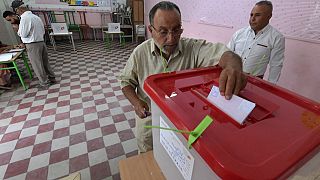

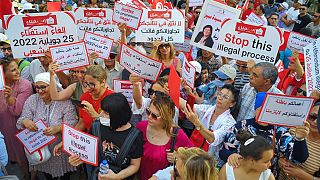

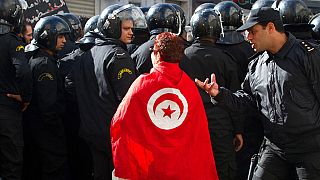
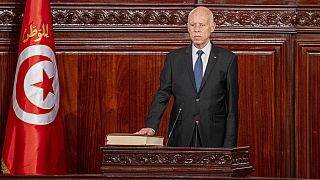

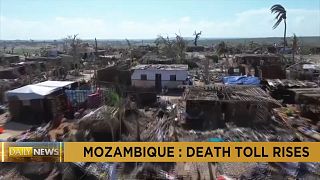
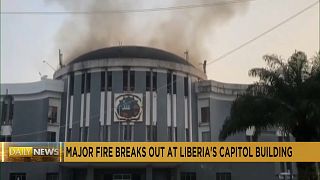
01:55
Campaign in DRC to say 'no' to planned constitutional amendment
01:12
Charles Onana found guilty of contesting crimes against humanity
01:45
Polls open in general election in Ghana
01:10
Mathias Pogba faces trial over comments made about sibling Paul Pogba
01:49
SA: Constitutional court hears PhalaPhala case, EFF hopes for an impeachment vote
01:11
DRC: UDPS pushes for complete overhaul of 2006 constitution